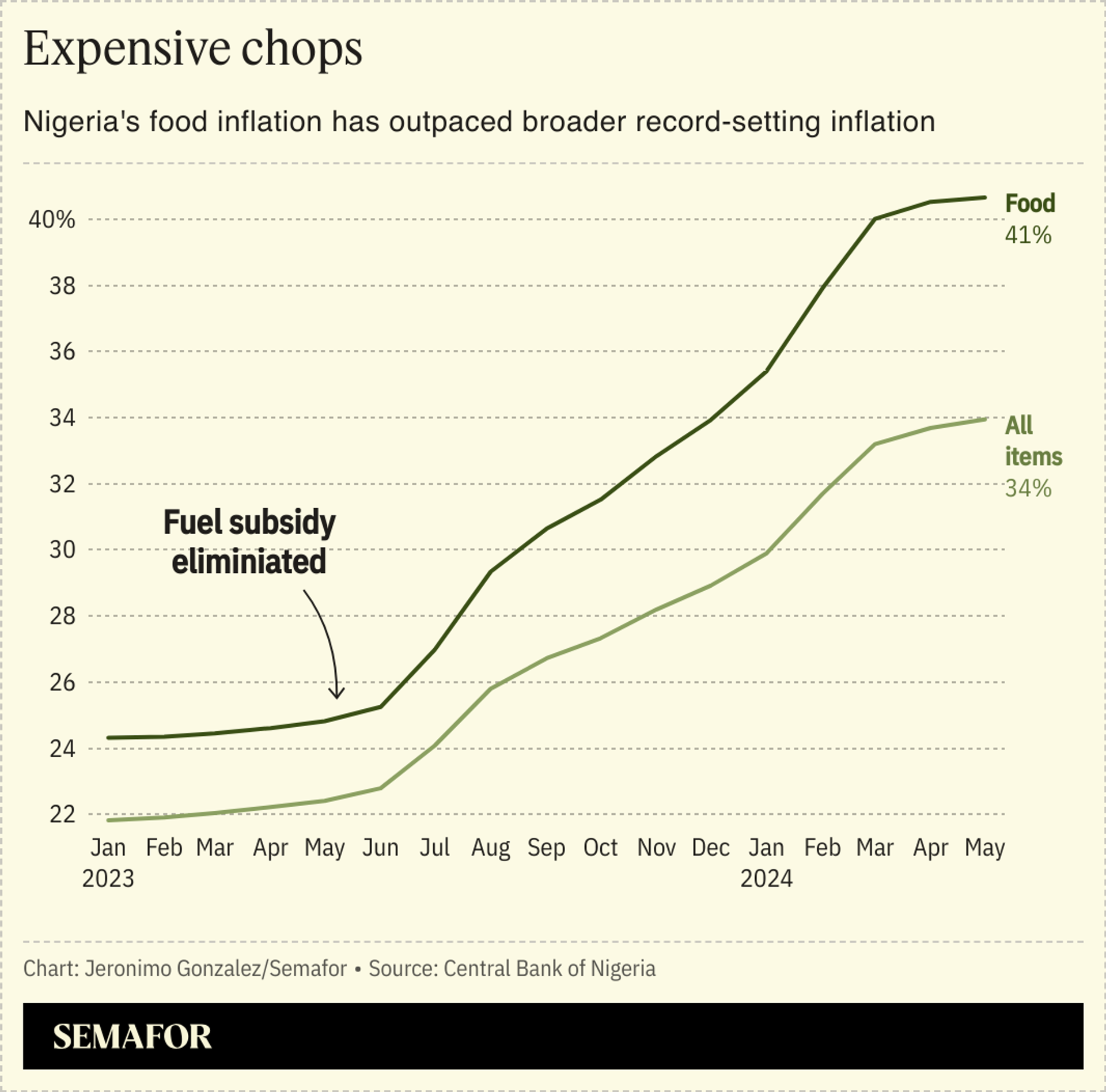The News
Nigeria will ramp up the importation of key food items and pause import taxes on certain grains in an attempt to battle runaway food inflation causing widespread hardship.
The suspension will be in place for 150 days and will cover maize, husked brown rice, wheat, and cowpea, according to the government’s agriculture minister Abubakar Kyari. The government will import 250,000 metric tons each of semi-processed wheat and maize that will be “supplied to small-scale processors and millers across the country,” Kyari said.
Know More

At 34.19%, Nigeria’s inflation rate in June marked another near-three decade high. It was more than 11 percentage points higher than the rate at the same time last year.
The annual inflation rate for food in particular was nearly 41%, the government’s statistics agency said. The result of sky high food prices has been a cost of living crisis squeezing millions of already poor households.
But importing food to solve inflation is a “depressing” move, said Akinwumi Adesina, head of the African Development Bank and a former Nigerian agriculture minister. The country should be “producing more food to stabilize food prices, while creating jobs and reducing foreign exchange spending” to stabilize the local naira currency, he said.
Nigeria’s President Bola Tinubu reiterated the temporary nature of the import plan at a recent event and that his government “will continue to drive local production” so Nigeria can feed on what it produces.
